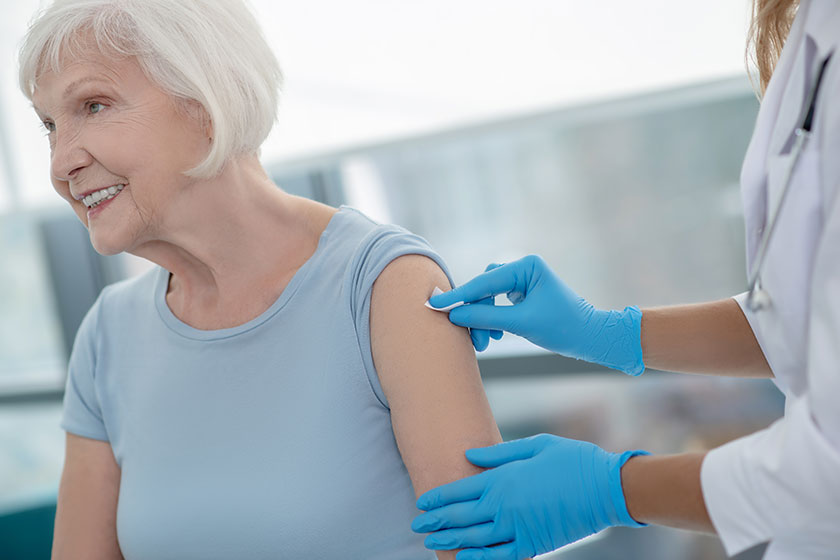As the flu season approaches, it is paramount for caregivers in assisted senior living in Mount Holly, NC to prioritize the health and well-being of the elderly residents. The unique challenges faced by older adults make them more susceptible to influenza and its complications. As you research retirement community options for your family member, understanding how these communities tackle flu prevention is essential. In this article, we will explore the crucial steps caregivers can take to protect your loved ones from the flu.
Understanding the Risk
It is well-documented that the immune system weakens with age. This fact makes older adults more prone to infections, including the flu. Additionally, many older adults have underlying health conditions, which can worsen if they contract the influenza virus. By recognizing these risks, caregivers in a retirement community can tailor their approaches to ensure the safety and health of their residents.
Vaccination: The First Line of Defense
One of the most effective measures to prevent the flu is vaccination. It is advised that all older adults receive the annual flu vaccine. In a retirement community, caregivers can organize vaccination drives, making it convenient for your loved ones to get their shots. These vaccines are specifically designed to cater to the elderly, considering their weakened immune systems.
Maintaining a Clean Environment
The cleanliness and hygiene standards of a retirement community play a pivotal role in preventing the spread of infections. Caregivers should ensure that common areas, living spaces, and equipment are cleaned and sanitized regularly. Emphasizing the importance of hand hygiene among the staff and residents can significantly reduce the risk of transmission. Encourage your family member to use hand sanitizers and wash their hands frequently, especially before meals and after using communal spaces.
Limiting Exposure
During the peak flu season, limiting the exposure of the elderly to large crowds or to individuals showing flu-like symptoms is vital. If a resident or staff member shows signs of the flu, they should be isolated and provided medical attention immediately. Caregivers can also communicate with families about the importance of postponing visits if they are feeling unwell.
Educating the Community
Education is a potent tool in flu prevention. Caregivers can host workshops or informational sessions to educate the elderly and their families about the dangers of the flu and the importance of preventive measures. Knowledge empowers individuals to take charge of their health. When your loved ones are informed, they are more likely to adhere to precautionary measures, enhancing their safety.
Nutrition and Immunity Boosting
A balanced diet plays an essential role in boosting immunity. In a retirement community, caregivers can collaborate with nutritionists to design menus rich in vitamins, minerals, and antioxidants. These nutrients support the immune system, making it better equipped to fight off infections. Encourage your family member to consume fresh fruits, vegetables, whole grains, and lean proteins. Hydration is equally important; ensuring adequate water intake can also aid in flu prevention.
Monitoring and Early Detection
Consistent monitoring of the health of residents is vital. Caregivers should be trained to recognize the early symptoms of the flu, allowing for prompt medical intervention. Early detection can mitigate the severity of the flu and reduce the risk of complications. Make sure the retirement community you choose for your loved one has a robust health monitoring system in place.
Physical Activity: Strengthening the Body and Immunity
Physical activity is not just about maintaining physical fitness; it also plays an integral role in bolstering immunity. Regular exercise improves cardiovascular health, enhances lung capacity, and aids in the efficient circulation of immune cells throughout the body. In a retirement community, caregivers should incorporate light to moderate exercise routines suitable for the elderly. Activities such as walking, gentle yoga, or chair exercises can be beneficial. Not only does this help in boosting their immune response, but it also keeps them active and engaged. Ensure that the retirement community you are considering for your loved one has ample opportunities for safe and structured physical activities.
Understanding How Things Work
The health and safety of your loved ones in a retirement community are of paramount importance. By understanding the measures that caregivers take to prevent the flu, you can ensure that your family member remains protected during the flu season. It is a collective effort, requiring the collaboration of caregivers, residents, and their respective families. By choosing a retirement community that prioritizes flu prevention and provides the care that your loved ones need, you are taking a significant step towards safeguarding the health of your loved one.







